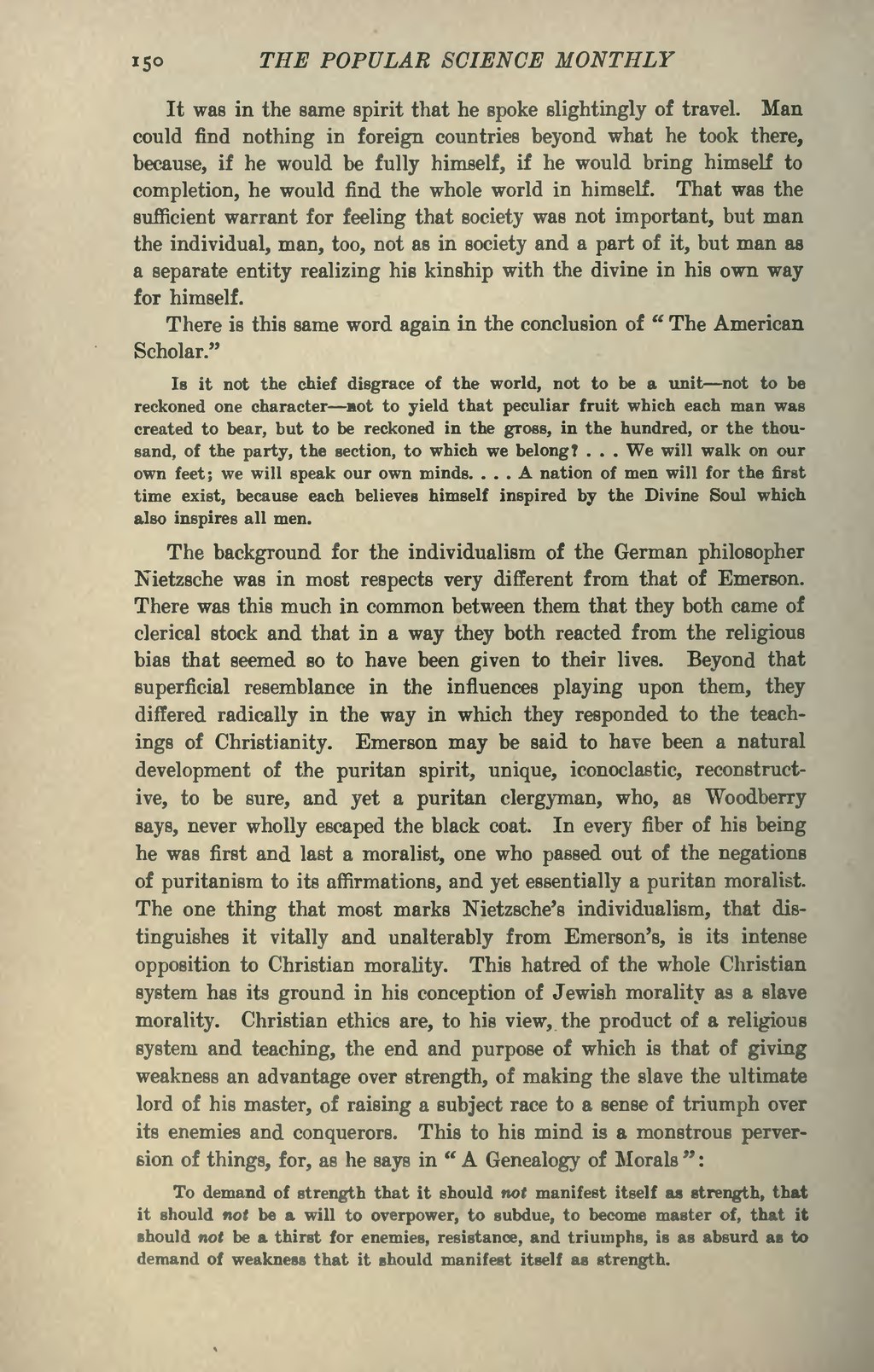It was in the same spirit that he spoke slightingly of travel. Man could find nothing in foreign countries beyond what he took there, because, if he would be fully himself, if he would bring himself to completion, he would find the whole world in himself. That was the sufficient warrant for feeling that society was not important, but man the individual, man, too, not as in society and a part of it, but man as a separate entity realizing his kinship with the divine in his own way for himself.
There is this same word again in the conclusion of "The American Scholar."
Is it not the chief disgrace of the world, not to be a unit—not to be reckoned one character—Hot to yield that peculiar fruit which each man was created to bear, but to be reckoned in the gross, in the hundred, or the thousand, of the party, the section, to which we belong?. . . We will walk on our own feet; we will speak our own minds. . . . A nation of men will for the first time exist, because each believes himself inspired by the Divine Soul which also inspires all men.
The background for the individualism of the German philosopher Nietzsche was in most respects very different from that of Emerson. There was this much in common between them that they both came of clerical stock and that in a way they both reacted from the religious bias that seemed so to have been given to their lives. Beyond that superficial resemblance in the influences playing upon them, they differed radically in the way in which they responded to the teachings of Christianity. Emerson may be said to have been a natural development of the puritan spirit, unique, iconoclastic, reconstructive, to be sure, and yet a puritan clergyman, who, as Woodberry says, never wholly escaped the black coat. In every fiber of his being he was first and last a moralist, one who passed out of the negations of puritanism to its affirmations, and yet essentially a puritan moralist. The one thing that most marks Nietzsche's individualism, that distinguishes it vitally and unalterably from Emerson's, is its intense opposition to Christian morality. This hatred of the whole Christian system has its ground in his conception of Jewish morality as a slave morality. Christian ethics are, to his view, the product of a religious system and teaching, the end and purpose of which is that of giving weakness an advantage over strength, of making the slave the ultimate lord of his master, of raising a subject race to a sense of triumph over its enemies and conquerors. This to his mind is a monstrous perversion of things, for, as he says in "A Genealogy of Morals":
To demand of strength that it should not manifest itself as strength, that it should not be a will to overpower, to subdue, to become master of, that it should not be a thirst for enemies, resistance, and triumphs, is as absurd as to demand of weakness that it should manifest itself as strength.
